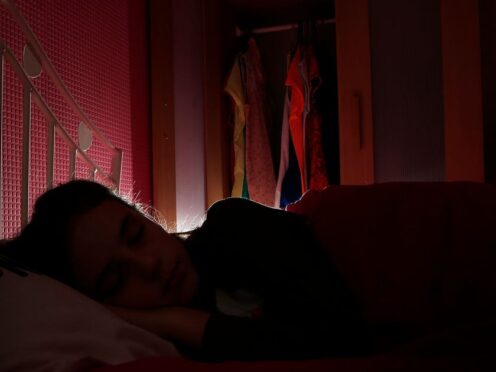Getting less than seven hours of sleep is associated with a 7% increased risk of developing high blood pressure over time, according to early research.
Less than five hours is linked to an 11% higher risk of hypertension, according to an analysis of data from 16 studies involving more than a million people.
The preliminary findings, presented at the American College of Cardiology’s Annual Scientific Session in the US, also showed women are at greater risk (7%) of developing the condition compared to men.
Kaveh Hosseini, assistant professor of cardiology at the Tehran Heart Center in Iran, said: “Getting too little sleep appears to be riskier in females.
“The difference is statistically significant, though we are not sure it’s clinically significant and should be further studied.
“What we do see is that lack of good sleep patterns may increase the risk of high blood pressure, which we know can set the stage for heart disease and stroke.”
For the study, the researchers looked at data from 1,044,035 people from six countries who did not have high blood pressure at the start of the research.
On average, they were followed up over a period of five years.
When adjusting for factors such as heart disease risk, sex, education, smoking status and weight, the team found short sleep duration to be associated with a higher risk of high blood pressure.
The team said there were no age-based differences in the link between sleep duration and high blood pressure, despite sleep patterns tending to shift with age.
The researchers said people should talk to their GP or healthcare professionals about their sleep patterns, as conditions such as obstructive sleep apnea – when breathing is interrupted during sleep – has been tied to higher rates of high blood pressure, stroke and heart disease.
Prof Hosseini also said further research is needed to understand more about the link between sleep and high blood pressure using more accurate methods.
But he added: “Getting seven to eight hours of sleep, as is recommended by sleep experts, may be the best for your heart too.”
